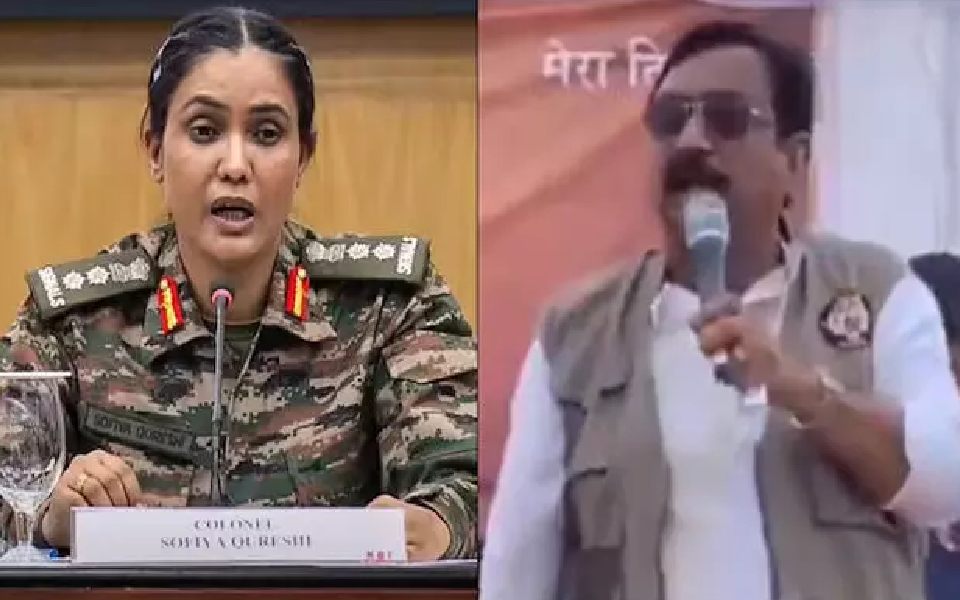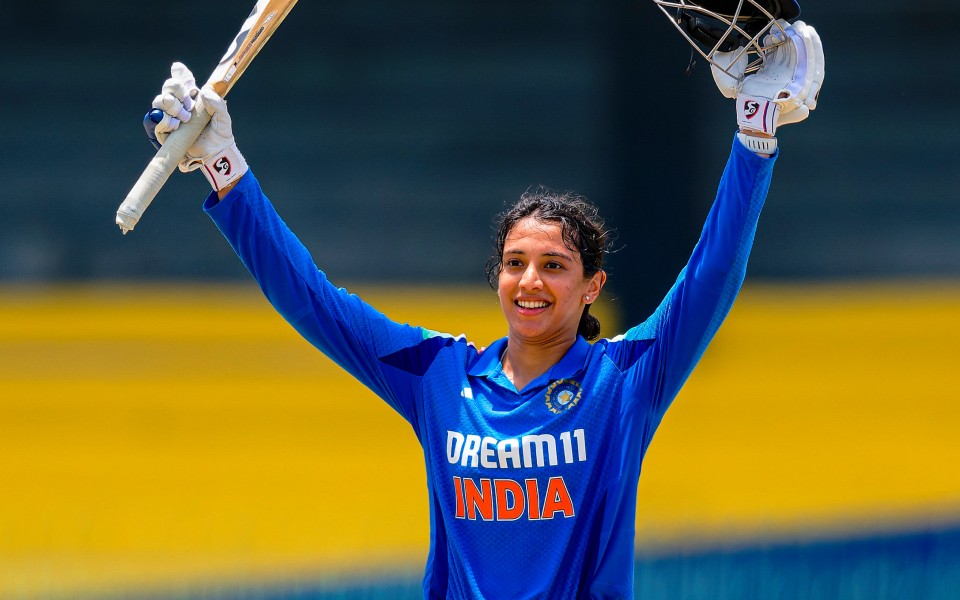Kozhikode (Kerala), Feb 3: Union Minister Meenakshi Lekhi on Saturday lashed out at a section of the audience at a youth conclave here for not chanting the "Bharat Mata Ki Jai" slogan despite she repeatedly asked them to do so.
A visibly irked Lekhi asked them whether Bharat was not their mother and even suggested a woman, who was reluctant to raise the slogan, to leave the venue.
The conclave was organised by certain right-wing outfits.
Concluding her speech, the senior BJP leader chanted "Bharat Mata Ki Jai" and asked the audience to repeat it.
As the response from the audience was not as expected, she asked whether Bharat was not their home.
"Is Bharat only my mother or your mother as well? Tell me...Tell me...Is there any doubt? No doubt?...Enthusiasm needs to be expressed," the Union Minister of State for External Affairs & Culture said.
She repeated the slogan and said that the response from the left side audience was still poor.
Pointing at a woman in the audience, Lekhi said, "the lady in yellow (dress) can stand up. Don't look on to the sides. This is how I am going to speak to you. I am going to ask you a straight question. Bharat is not your mother?... Why this attitude?"
Lekhi again chanted Bharat Mata Ki Jai. The woman was still standing idle, doing nothing.
"I think you should leave the house," she said.
The minister also made it clear that someone who does not feel proud of the nation and who finds it embarrassing to speak about India, need not be part of the youth conclave.
Union Minister and BJP leader Meenakshi Lekhi loses her cool at Kerala audience for not responding loud enough to her "Bharat Mata ki Jai" chants in Kozhikode. She later asks the lady in the audience to leave the house. What arrogance! pic.twitter.com/xheHDEtwRX
— Mohammed Zubair (@zoo_bear) February 3, 2024
Let the Truth be known. If you read VB and like VB, please be a VB Supporter and Help us deliver the Truth to one and all.
Bhopal/Indore, May 13 (PTI): Madhya Pradesh Minister and BJP leader Vijay Shah has sparked a major controversy with objectionable comments that appeared to be directed at Col Sofia Qureshi, whom he tried to project as a "sister of terrorists."
Under severe flak, Shah said if anyone is hurt by his statement, he is ready to apologise ten times, adding that he respects Colonel Qureshi more than his sister.
The Congress has appealed to Prime Minister Narendra Modi to sack Shah from the Madhya Pradesh cabinet.
Colonel Qureshi had conducted regular press briefings, sharing details of the 'Operation Sindoor' launched by Indian armed forces to strike terrorists, joined by Foreign Secretary Vikram Misri and Wing Commander Vyomika Singh.
"Those people (terrorists) who had wiped out the sindoor (vermilion) of our sisters (in the Pahalgam terror attack)..We avenged these 'kate-pite' people by sending their sister to destroy them," Shah said.
"They (terrorists) killed our Hindu brothers by making them remove their clothes. PM Modi ji responded by sending their (terrorists') sister in an Army plane to strike them in their houses. They (terrorists) made our sisters widows, so Modiji sent the sister of their community to strip them and teach them a lesson", the BJP leader said while addressing a gathering in Ramkunda village near Indore.
He said, "Revenge was taken for the honour of our country (India), respect, and for the (slain) husbands of our sisters by sending a sister from your (terrorists') community to Pakistan".
The tribal welfare minister clarified that his remarks should not be construed otherwise.
Shah's remarks drew wide-scale condemnation, with Congress demanding his immediate dismissal from the MP cabinet.
Congress President Mallikarjun Kharge said Shah, who made 'derogatory' remarks in reference to Colonel Sofia Qureshi, should be dismissed immediately.
"A minister of the BJP government of Madhya Pradesh has made a very derogatory, shameful and cheap remark about our brave daughter Colonel Sofia Qureshi. The terrorists of Pahalgam wanted to divide the country, but the country was united during the entire 'Operation Sindoor' to give a befitting reply to the terrorists," Kharge posted on X.
He alleged that the BJP-RSS harbours an anti-women mentality.
"First, the wife of the naval officer martyred in Pahalgam was trolled on social media, then the daughter of Foreign Secretary Vikram Misri was harassed, and now the BJP ministers are making such indecent comments about our brave woman Sophia Qureshi," Kharge said and appealed to PM Modi to immediately sack Shah.
Madhya Pradesh Congress president Jitu Patwari shared the video of Shah on X and asked whether the BJP agrees with the minister's "low thinking"?
The MP Congress Committee alleged that Shah's "indecent' and hate-filled" statement is not just a personal attack, but an open attack on India's military dignity, national unity, and women's honour.
Amid the raging controversy, the BJP's Madhya Pradesh general secretary Hitanand Sharma summoned Shah to the state headquarters in Bhopal.
According to sources, Sharma reprimanded the minister, who also met the state BJP president, Vishnu Dutt Sharma.
Speaking to reporters, Shah sought to attribute the intemperate remarks to his "disturbed" state of mind in view of the brutal killing of innocent people in Pahalgam by terrorists.
He claimed many members of his family have a military background and many were martyred.
"Sister Sophia has brought glory to India by rising above caste and religion. She is more respected than our own sister. I salute her for her service to the nation.
"We cannot even think of insulting her in our dreams. Still, if my words have hurt society and religion, then I am ready to apologise ten times,'' he added.
Meanwhile, Congress leader Manoj Shukla and the party workers blackened the nameplate of Shah at his bungalow and raised slogans seeking his resignation.
'हमारी सेना की जांबाज बेटियां आतंकवादियों की बहन हैं'
— Congress (@INCIndia) May 13, 2025
- ये घटिया बात मध्य प्रदेश में BJP सरकार के मंत्री विजय शाह ने कही है।
भारत की जिन बेटियों पर सबको नाज है, उन बेटियों को लेकर ये शर्मनाक बयान दिया गया है। उन्हें आतंकवादियों की बहन बताया गया है।
ये हमारी पराक्रमी सेना का… pic.twitter.com/y591M3ky8G





